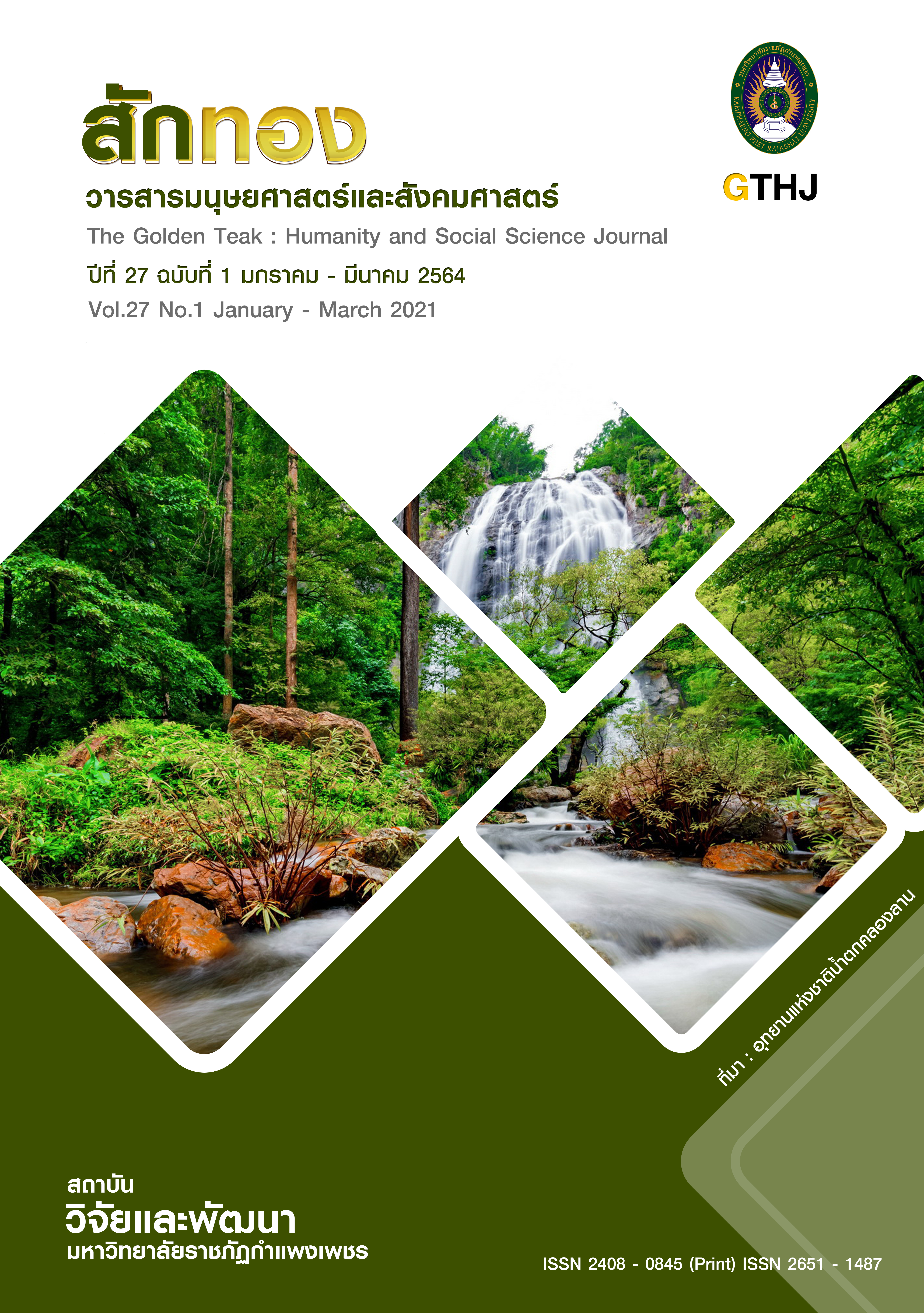The Study of Information and Communication Technology Knowledge of Undergraduate Students at Sukhothai College of Dramatic Arts, Bunditpatanasilpa Institute
Main Article Content
Abstract
The purpose of this research was to study information and communication technology knowledge of undergraduate students at Sukhothai College of Dramatic Arts Bunditpatanasilpa Institute. The sample group used in this study was undergraduate students at Sukhothai College of Dramatic Arts Bunditpatanasilpa Institute. 103 people were obtained through disproportionate random sampling. Using questionnaires as a tool to collect statistical data used in data analysis including frequency, percentage, mean, standard deviation. T-test, one-way analysis of variance (One-way ANOVA) and paired test according to the Scheffe’s Test). Result of the research finds that 1) The students of Sukhothai College of Dramatic Arts Bunditpatanasilpa Institute, were mostly female, studying at the 4th year undergraduate level. 2) Students of Sukhothai College of Dramatic Arts Bunditpatanasilpa Institute, have a high level of information and and communication technology knowledge in all 5 factors. The overall picture was at a hight level with the mean of 3.77. When considering all 5 elements, it was found that students had a high level of knowledge. The information and communication technology is at the highest level. 1 element, ie creation, has an average of 4.51, very high level, sorted by average, has 3 elements, has 3 elements, ie access to data (Access), average 4.26, followed by Is the evaluation (Evaluate) with an average of 3.89 and the management has an average of 3.68 and the middle level is Integrate. The average is 2.75, respectively. The hypothesis test. 3. Hypothesis testing 3.1 Information and communication technology of students classified by gender and year of study are different.
Article Details
บทความที่ได้รับการตีพิมพ์เป็นลิขสิทธิ์ของวารสาร สักทอง : วารสารมนุษยศาสตร์และสังคมศาสตร์ สถาบันวิจัยและพัฒนา มหาวิทยาลับราชภัฏกำแพงเพชร
ข้อคิดเห็นใดๆ ที่ปรากฎในวารสารเป็นวรรณกรรมของผู้เขียนโดยเฉพาะ ซึ่งมหาวิทยาลัยราชภัฏกำแพงเพชรและบรรณาธิการไม่จำเป็นต้องเห็นด้วย
References
Hilberg, J.S. (2008). Fluency with information and communication technology : Assessing undergraduate students. Wilmington College (Delaware) United States.
[Online]. Available : http://Proquest.umi.com [2009, August 3].
Khaiyawan, Y. (2002). Fundamental research. (4 th ed.). Bangkok : Suwiriyasarn.
Liamsuwan, S. (2012). Comparison of Information Literacy and Information Technology
Knowledge with Communication with University Students’ Achievement : Case
Study of Undergraduate Students at Prince of Songkla University, Pattani
Campus. Bachelor of Arts Thesis in Information Management, Prince of Songkla
University, Pattani Campus.
Malithong, G. (2005). ICT for Education. Bangkok : Arun Printing.
Parnership for 21st Century Skills (2009). Learning for 21st Century : A Report and Mile Guide for 21st Century Skills. [Online]. Available : http://www.21stcenturyskills.org [2009, August 3].
Radaboot, M. (2011, January-April). Competency in Using Information Technology of Nursing College Students Under the Royal Institute under the Ministry of Public Health. Science Service, 22(1), 109-116.
Srisa-ard, B. (1992). Preliminary Research. (2 nd ed.). Bangkok : Suwiriyasarn.
UNESCO. (2008). Strategy framework for promoting ICT literacy in the Asia-Pacific. Bangkok : UNESCO.


